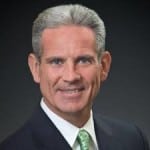
[Editor’s Note: In a story about PRSA president Anthony D’Angelo’s reaction to an op ed column equating lying with practicing PR (PRN, February 13), D’Angelo vowed to lay out a fuller vision for ethics and PR. This column is that vision.]

The farther technology launches PR into tantalizing, confusing new worlds conjured by algorithms and delivering alternative realities, the more important the profession’s ethical fundamentals become. How do we behave properly in a virtual world? Who can we trust within it? In short, we must behave according to recognized ethical standards because the ethical PR professional ultimately earns trust—and without trust, PR is unable to function.
The USC Annenberg 2018 Global Communications Report, The Evolution of Ethics (PRN, April 17), surveyed some 1,000 PR pros. It found 92% think PR needs a generally accepted code of ethical standards; 46% of those surveyed say they never received formal ethics training. I have welcome news for them: Those resources are available to you. It’s urgent you avail yourselves of them for the safety of your career and of those organizations you counsel.
Your Data is Being Watched
You are being watched—organizations, PR pros and media consumers alike—and by “you,” I mean “your data.” You’re not only watched, you’re harvested, with your data sold to others who wish to sell, promote or communicate to you.
What are the ethical obligations of the media scraping your data or targeting you with messages based on your demographics and digital habits? And what are the PR pro’s obligations to media audiences that may not know or even care about the sponsors and motives behind the messages they receive?
For PR pros, the acid test is whether you have earned permission from your audiences to practice effectively. The price of that level of trust is nothing less than adherence to ethical principles demonstrated through repeated behaviors in all the media you traffic in, from face-to-face interaction to virtual reality. Given that digital and social media capabilities outpace the recognized industry practices and legislation governing them, there is a high premium on continuing education for PR and media professionals so their media literacy is never obsolete and their ethical practices stay informed and relevant.
To ignore continuing education is, in the 21st century, to risk incompetent and even unethical behavior.
Public Won’t Care About media forms
It’s unsettling to read in Annenberg that 64% of PR pros think in five years the average person will be unable to distinguish between paid, earned, shared and owned media, and 59% say the average consumer won’t care if those media types are indistinguishable. If those prophesies materialize, the implication is media consumers will not be informed decision makers. That is a recipe for organizational and societal dysfunction.
The potential for news sources and consumers to be duped and trust to be broken is plainly in evidence, as in the April 24 story from the Chronicle of Higher Education. It told of a company that published material about financial topics under a pseudonym. Established news media outlets quoted this fictional author as if he were real, not realizing he was a mouthpiece for the company’s views. This subterfuge can only become more advanced as technologies and media channels develop.
Relentless Application of Ethics a Must
Two things must happen for the PR industry to stay healthy:
• higher awareness, visible adoption and relentless application of ethical codes, and
• continuous education on digital and social media literacy to promote informed decision-making by organizations and individuals.
Even if audiences claim “I don’t know” and “I don’t care” about what sort of message or medium they’re viewing, they will be outraged if they later learn they’ve been duped and their data was hijacked, as were some 87 million people caught up in the Facebook/Cambridge Analytica scandal.
Some percentage of those audiences will withdraw their support, and certainly the trust breach incites even publics who weren’t involved. Those of us who counsel organizations on avoiding such crises must therefore keep pace with technological advancements and, equally important, the ethical implications of employing those technologies.
Recommendations for the Profession
Below are actions for PR pros:
1. Know a Code of Ethics Cold.You can apply the PRSA Code of Ethics, even if you don’t belong to PRSA. Ditto The Page Principles. Outside North America, your professional association may have its own code, or you can look to the Global Alliance, ICCO and other organizations that promote the Helsinki Declaration and other actionable guidelines.
2. Commit to Continuous Education. PR pros should strive to “improve, adapt and expand professional practices,” according to PRSA’s ethical code. The organization’s Board of Ethics and Professional Standards (BEPS) publishes periodic Ethical Standards Advisories, stored online, to provide guidance to PR pros on a range of topics. Other associations provide similar updates.
3. Explore and Develop Procedures, Guidelines and—if Necessary—Legislation. These should effectively and fairly govern media and need to be enacted faster than the formation of established conventions.
If you’re not conversant with the European Union’s General Data Protection Regulations (GDPR) ( PRN, April 17), you have homework to do, as the GDPR goes into effect in May and some version may quickly migrate to North America and other regions through legislation or companies’ individual policies.
As individuals have this obligation, so too does PRSA and other professional associations, which must provide education and training on this critical new content area, as well as on 21st century media literacy, to help members avoid irrelevance, malpractice or a combination of them.
Ethical standards and professional development are, however, not enough. That knowledge must be applied consistently, repeatedly and visibly within the PR profession, because any gap between proper knowledge and resulting behavior will fracture trust and relationships.
Updating and learning the applicable principles without applying them would be like publishing a 64-page code of ethics and then committing crimes and going out of business, just like Enron did.
CONTACT: [email protected]
